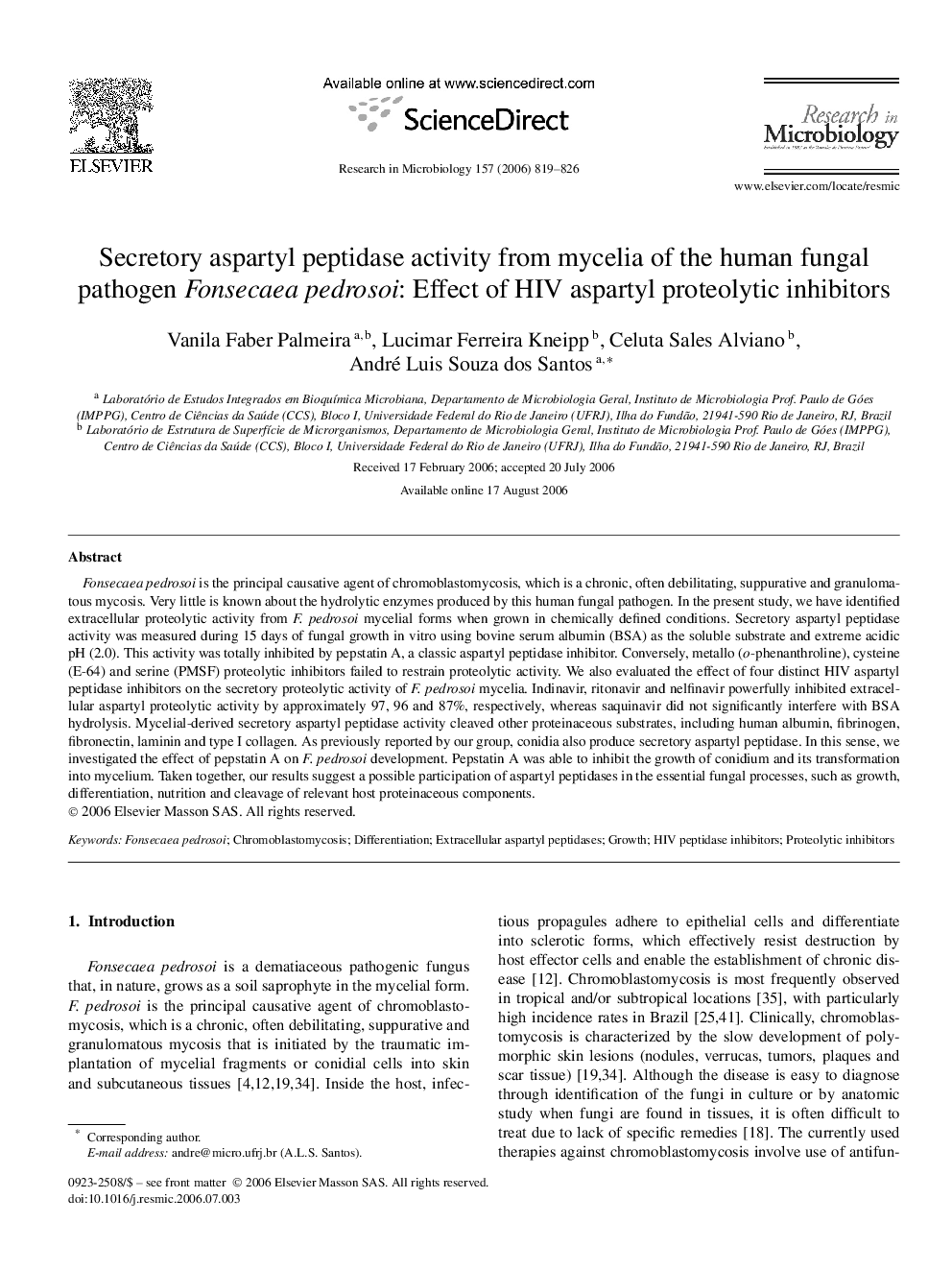| کد مقاله | کد نشریه | سال انتشار | مقاله انگلیسی | نسخه تمام متن |
|---|---|---|---|---|
| 4359324 | 1300498 | 2006 | 8 صفحه PDF | دانلود رایگان |

Fonsecaea pedrosoi is the principal causative agent of chromoblastomycosis, which is a chronic, often debilitating, suppurative and granulomatous mycosis. Very little is known about the hydrolytic enzymes produced by this human fungal pathogen. In the present study, we have identified extracellular proteolytic activity from F. pedrosoi mycelial forms when grown in chemically defined conditions. Secretory aspartyl peptidase activity was measured during 15 days of fungal growth in vitro using bovine serum albumin (BSA) as the soluble substrate and extreme acidic pH (2.0). This activity was totally inhibited by pepstatin A, a classic aspartyl peptidase inhibitor. Conversely, metallo (o-phenanthroline), cysteine (E-64) and serine (PMSF) proteolytic inhibitors failed to restrain proteolytic activity. We also evaluated the effect of four distinct HIV aspartyl peptidase inhibitors on the secretory proteolytic activity of F. pedrosoi mycelia. Indinavir, ritonavir and nelfinavir powerfully inhibited extracellular aspartyl proteolytic activity by approximately 97, 96 and 87%, respectively, whereas saquinavir did not significantly interfere with BSA hydrolysis. Mycelial-derived secretory aspartyl peptidase activity cleaved other proteinaceous substrates, including human albumin, fibrinogen, fibronectin, laminin and type I collagen. As previously reported by our group, conidia also produce secretory aspartyl peptidase. In this sense, we investigated the effect of pepstatin A on F. pedrosoi development. Pepstatin A was able to inhibit the growth of conidium and its transformation into mycelium. Taken together, our results suggest a possible participation of aspartyl peptidases in the essential fungal processes, such as growth, differentiation, nutrition and cleavage of relevant host proteinaceous components.
Journal: Research in Microbiology - Volume 157, Issue 9, November 2006, Pages 819-826